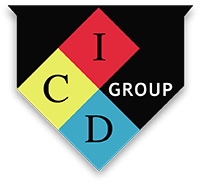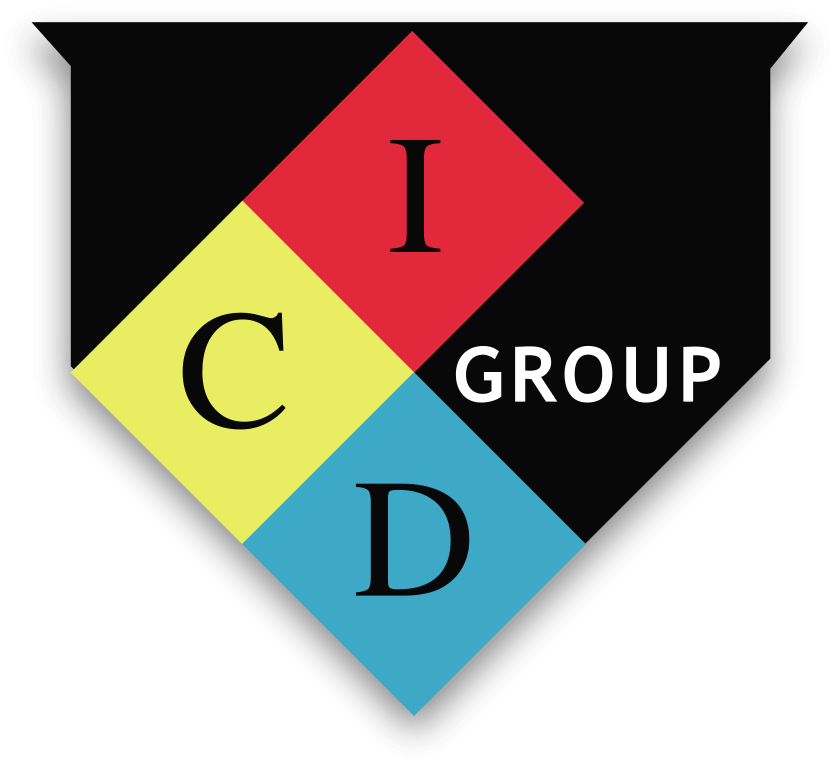Joseph M. Matalon is a well-known businessman and philanthropist, but had it not been for a lack of facility with the sciences, he might have been better known today as a veterinarian, his early but aborted career choice. The private-sector leader was among the honorees who were bestowed with the International Humanitarian Hummingbird Award by American Friends of Jamaica (AFJ), during their gala event in New York on October 23.
In an interview with The Gleaner, he commended the AFJ as an organisation doing good work and raising money in the diaspora for development and charitable work in Jamaica. Matalon also took the time to recap highlights of his journey to business prominence, community service and significant involvement in charity work.
Recognising in high school that the sciences were not his forte, and not having been at that time particularly keen on a career in the family business, young ‘Joe M.’ decided to pursue a degree in economics at the London School of Economics. “I graduated in 1980 and applied to a number of places for a job because I was determined I wasn’t coming back here (to Jamaica) immediately. I wanted some experience under my belt,” he recalled.
The first job he landed was with the Aluminum Company of America and following successful rounds of interviews, including at its head office in Pittsburgh, USA, he was hired and sent back to England essentially as a salesman in the imported products division. Matalon recalled that he was “bored to tears in sales” and eagerly put himself forward when an opportunity came up for the financial controller position in the department. It was here that he discovered his love and abilities for finance and has pretty much been on that trajectory ever since.
After four years, including two as financial analyst in the international department at head office in Pittsburgh, a watershed moment arrived. In Pittsburgh, Matalon’s main focus was a new aluminium plant that was being built in Manaus, Brazil, in an area of the Amazon jungle. He was offered the financial controller job for the new plant. “The prospect of living in the Amazon jungle was not the most attractive option I could think of, and more and more I started to think about returning to Jamaica and decided to come home in 1984.”
He went straight into the family business, ICD Group, he had avoided earlier and was employed as an entry-level financial analyst with his main focus being financial services. It was at this time that he helped to spearhead and establish a number of businesses in financial services, including a partnership with Bank of Nova Scotia to set up Industrial Finance Holdings Limited. There was Industrial Financial Corporation and International Insurance Brokers. He also started Sigma Unit Trust Managers and Sigma Investment Managers, and Prime Life Assurance Company. As he got more involved in general financing for the group, he was appointed executive vice-president and became chairman in 2000.
Before assuming the top leadership of the group, however, the 1990s provided the biggest test of Matalon’s management mettle and the resilience of the ICD business. He recalled that a massive shrinking of the Jamaican economy, coupled with a high interest rate environment, caused the businesses, particularly those in manufacturing and distribution, to become heavily indebted. “The companies were all heavily leveraged and it became apparent that with the very high interest rate of 40 and 50 per cent, the businesses were unsustainable,” he recalled.
A US stock market listing was contemplated but advised against by the American investment bank Merrill Lynch, which advised that the time was not opportune. Instead, a US dollar bond offering was successfully done to replace the high cost debt with US-dollar denominated debt, but with much lower interest rates. At the same time, a number of the businesses within the portfolio were offloaded as a more radical overhaul became necessary to achieve profitability.
Among the many businesses sold were Facey Commodity, Homelectix, Shoppers Fair, Butterkist, Universal Stores, P.A Benjamin, Serge Island Dairies and Farms, Tropicair, air-conditioning and engineering firm CAC, Redimix and Northern Aggregates. Sigma merged with Manufacturers Merchant Bank and the Prime Life insurance portfolio was sold to Guardian Life. The result was that by about 2004-2005, the group was essentially debt-free with British Caribbean Insurance Company (BCIC), West Indies Home Contractors (WIHCON), WIHCON Properties and CGM Gallagher, the regional brokerage business which had merged with a Barbadian firm, remaining in the scaled-down group.
Group Relatively Debt-Free
Since then, the group has remained relatively debt-free and is profitable, with the turning point for profits coming in 2002. “We certainly became significantly more profitable with the five or six companies than we were with the 30 companies. We have engaged in a number of new businesses more recently and we established some investment criteria in terms of foreign exchange earnings and global potential for employment creation in Jamaica,” the ICD Group head noted.
“The leaner ICD Group developed pension business Prime Asset Management Limited and we went into the business process outsourcing (BPO) industry with the acquisition of Advantage Communication of Canada. A lot of the business was migrated to Jamaica using the competitive advantages of Jamaica as a near-shore BPO destination.”
A different kind of business
The group, with a total workforce of some 2,300, has been building out a radically different kind of business, putting in several e-commerce type, technology-related firms. It acquired a substantial minority interest in Social Media Group, headquartered in Puerto Rico. Investing “a couple million US dollars”, ICD acquired about 35 per cent of the parent company and 45 per cent of Social Group’s location operation of Gustazos, an online daily deals business for the purchase of meals, vacations, etc. He says the business has done very well in Jamaica and they been opening up new markets in the Dominican Republic, Panama, the Canary Islands and elsewhere.
Most recently, the transformed ICD holding company acquired a minority interest in a start-up company, Amber Connect, which is a vehicle-tracking and security device with software that provides alerts and granular data on the movement of a vehicle. After one year of operation, some 3,000 of the devices, which are also able to remotely disable vehicles, have been sold locally with consumer sales and significant business transactions, with the Jamaica Defence Force, National Water Commission and a pilot with the government-owned Jamaica Urban Transit Company, making up the bulk of sales. Great business prospects are opening up for this product in places like South Africa, Matalon has reported.
At the same time, the legacy businesses such as WHICON and BCIC have continued to do well and have themselves adopted digital strategies to help them compete efficiently in their business segments. “That is the future. If you are not running your business with the benefit of technology you are going to find that you fall behind the competition,” he said. This strategy has helped BCIC gain entry into the Barbados market, since July this year, with a sales staff located there and all back-office operations done in Jamaica through a computer portal. The early success of this venture has implications for eventual roll-out elsewhere in the Caribbean region and globally.
Helped To Change Lives
As transformative as he has been in business, Joseph M. Matalon has also helped to change lives by public service, community engagement and through charitable work.
He explained the genesis: “The family has always had a very strong ethos of public service, in particular giving back to Jamaica, which obviously is a country that has treated us very, very well. While grandfather Matalon came here at the turn of the 20th century, my grandmother’s family had been in Jamaica for nearly 250 years, so I am a bit of a nationalist.”
This commitment to Jamaica manifested itself in service on several government boards and committees spanning different political administrations. The former chairman of the Development Bank of Jamaica, and current chairman of the Office of Utilities Regulation (OUR), has also been a member of the Energy Sector Enterprise Team (ESET) and served on several tax review committees since the 1980s. He also served the executive of the Private Sector Organisation of Jamaica for many years, including three years as president.
The ICD Group chairman is also proud of his work as a director of 1834 Investment Limited, formerly The Gleaner Company, for the past 30 years. He is now a director of the RJRGLEANER Communications Group following the recent merger of RJR and The Gleaner Company (Media).
“I have remained with The Gleaner and with the RJR Group because I believe it is very important that there be a strong locally owned and professional media group in Jamaica. It is one of the things that makes our democracy work and work very well. We have one of the freest media in the world. It is important that we maintain that,” he explained.
The issues facing youth in Jamaica and disadvantaged, unattached youth in particular, have always stirred a response in him, Matalon pointed out. His first involvement in this area was with the St Patrick’s Foundation, where he raised funds for youth activities and is now its honorary chairman. He has also been involved with the Multicare Foundation, which has been a longstanding affiliate of ICD Group and was started by his uncle, Aaron Matalon. Here, Joseph Matalon works with about 30 schools, enriching the curricula of those schools in the areas of sports and the visual and performing arts.
Probably his signature involvement in youth projects has been with the Youth Upliftment Through Employment (YUTE) programme that grew out of the PSOJ’s social and economic response to the Tivoli incursion. A programme of remedial numeracy and literacy for youth who are not in school, skills training and mentorship was designed and a first phase implemented. The youngsters are also taught soft life skills in dispute resolution, team building and life planning.
The PSOJ divested itself of the administration of the YUTE programme in 2012 and since that time, that coincided with the end of Matalon’s presidency of the organisation, he has taken on the coordination of the programme from his ICD office in downtown Kingston. Now, the YUTE initiative and the Multicare Foundation have been merged into the Multicare Youth Foundation, serving youngsters from ages six to 16 and 17 to 29. Matalon also serves as a director of the International Youth Foundation.
—
Article source: Jamaica Gleaner.


